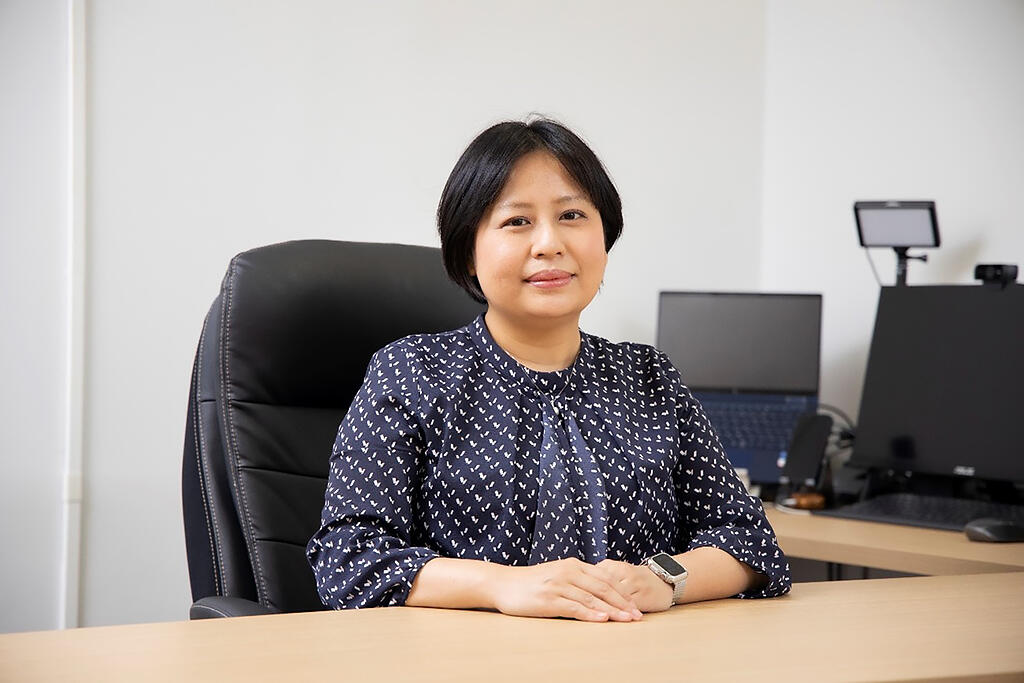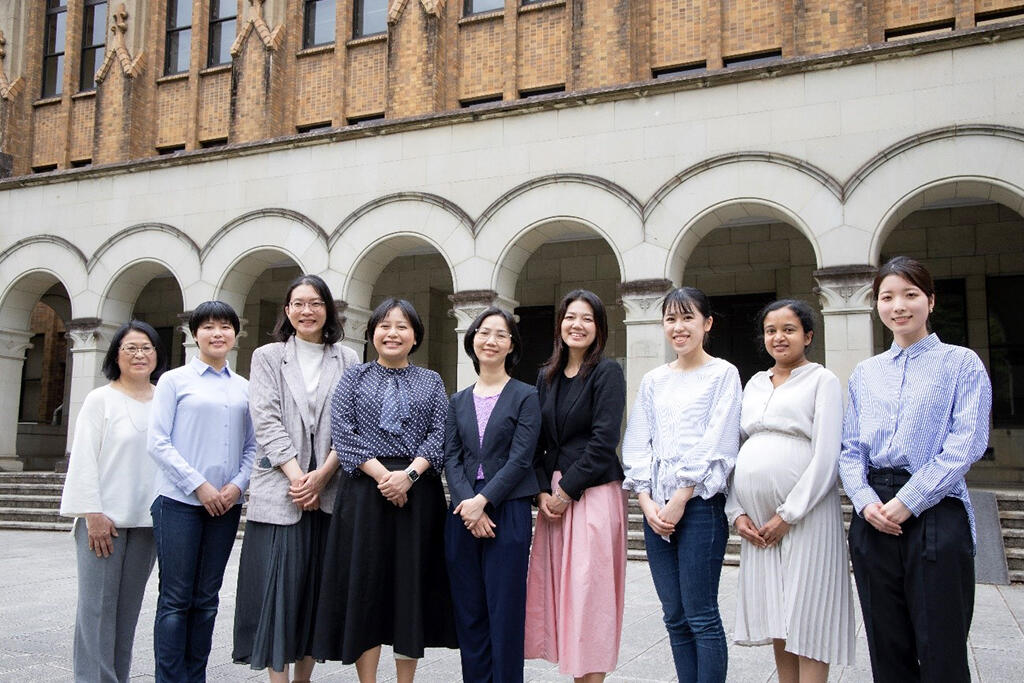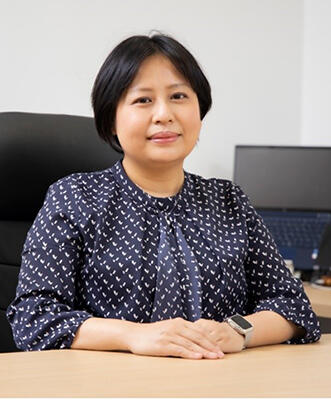Science Japan spoke with Dr. Meng Ling Moi, a Malaysian national working as a professor at the University of Tokyo about her research and experiences as a researcher in Japan. As the COVID-19 situation continues on into the second half of 2022, Dr. Moi's experience researching the virus gives her a high level of insight into SARS-CoV-2 and we asked her to share some of that knowledge with us.

(provided by Dr. Moi)
Please give us a quick overview of your research.
I have been working on prevention measures against tropical and emerging virus diseases, including dengue, zika, chikungungya and SARS-CoV-2. My research fields include virus pathogenesis and transmission, diagnostics and vaccine development, disease surveillance, and population immunity to tracking viral spread, epidemiology and field research. Together with a team of national and international collaborators from Vietnam, Malaysia, Philippines, Myanmar, Thailand and the US, these research projects have led to the successful development of in vitro and in vivo models for mosquito-borne viral diseases and COVID-19 vaccine evaluation studies. The novel cell culture assay and animal model we developed has also led to a better understanding of the immune response induced after dengue and zika infection. As a previous deputy head of the WHO collaboration center (WHOCC) for reference and research on Tropical and Emerging Diseases, I have been, and continue to work closely, with the WHO and the local and international community to reduce the global spread of high threat pathogens and diseases and to improve diagnostics and develop better vaccines.
What was the spark that drove you to your research field?
During my final year as an undergraduate student in Malaysia, I was infected with dengue virus and despite having severe symptoms, I was told that there were no specific medications for the disease. Looking back, most of my family and friends have been afflicted with it, but at the time there were still no effective medications nor a vaccine for dengue. During that time, I felt strongly that something must be done for dengue control and neglected tropical diseases (NTDs). NTDs represent diseases that are common in tropical and subtropical regions and are "neglected" in the context that these diseases are of lower priority in general health decision making. Looking back at the past 18 years of my research in this field, while we have progressed in terms of disease diagnosis and vaccine development, I felt that there is still much to be done as we still do not have a universal dengue vaccine.
What are you currently working on?
I am currently working on research to better understand how virus infections affect our immune response in leading to protection, vaccine and therapeutics development and mosquito-borne disease epidemiology.
Vaccines are the best way to protect us against infectious disease. In this context, a major reason behind the lack of effective vaccine for dengue, zika and a majority of the NTDs is because we need a better understanding on how our body works in protecting against these diseases. For the past few years, we have been working on better in vitro and in vivo tools to better understand what are the levels of immunity that offers protection against dengue and zika. Although dengue virus infection and vaccination elicit neutralizing antibodies against the virus, waning antibodies after infection do not offer protection against infection of a different serotype, and in some cases, these weakly binding antibodies enhance infection in a phenomenon known as antibody dependent enhancement (ADE). To understand the reason behind this, we developed an assay that measures ADE activity and showed that the ADE activity hampers neutralizing activity, resulting in lower overall neutralizing activity. This suggests that we should take ADE into consideration during disease protection and vaccine design. We are currently working on developing a better dengue vaccine design, in consideration of ADE activity and T-cell immune response.
Your research on viruses means that COVID-19 is a more familiar topic to you than most other researchers. How would you say that the pandemic has affected your research, and how is research into COVID-19 different from your previous work, such as on the Dengue virus?
COVID-19 has changed our way of thinking on infectious disease control and revolutionized vaccine and therapeutics development. Vaccines which have taken years to be made in the past were developed at an unprecedented pace. The Coalition for Epidemic Preparedness Innovations (CEPI), with the support of major health organizations, has proposed a blueprint for the development of vaccines against viral threats in 100 days. I believe that the many platforms which resulted from a surge of investigators working on newer vaccine platforms will boost the development of newer and better generation of dengue vaccines, at a much more rapid pace.
Could you quickly share how your research brought you to Japan?
As an undergraduate student in Malaysia, I majored in Microbiology. I entered the workforce after graduating with a BSc, but I felt that my technical knowledge and skills were insufficient to further my career progress. I looked up several graduate school scholarships but was unfortunately not accepted to any of them. I was about to give up, but decided to answer the call for applications for the MEXT graduate school scholarship that was advertised in a local newspaper. After passing the screening exam and interview, I arrived as a research student at Tsukuba University, April 2003. This was the beginning of my academic career in Japan.
How would you compare the research environment in Japan to Malaysia?
My impression on the research environment in Japan is that the laboratories here are among the best equipped and well-maintained facilities in the world. The research institutes which I was affiliated with were influential research hubs in tropical diseases including dengue, in-spite of the fact that the disease is non-endemic in Japan. The work culture here has taught me discipline and neatness, and exposure to these cultural aspects has brought new perspectives on my work and research.
What have been the biggest benefits of undertaking research here in Japan?
Many people find the reason that I am working on tropical diseases that are not found in Japan intriguing. Despite the fact that these diseases are not endemic in Japan, I am grateful to have received a lot of support and encouragement to engage in tropical disease research at the world-class facilities here. All of this support made collaborations with our international collaborators much smoother, which helps facilitate synergy in delivering research-based solutions across the region.
What advice do you have for researchers looking to work in Japan?
I would advise researchers to look at what can be learnt from cultural differences between our home-country and Japan and to forge long-lasting connections. From my own experience, I took up the Japanese language and learnt about the culture. While I have maintained my "Malaysian" way of thinking, I was also looking at the perspectives of my Japanese colleagues. I would liken this to an inspiration from the Japanese word "感じ" (read "kanji"), which is to feel and to be receptive. Being receptive helps us to take-in the new and give back something better to society.
And finally, what are your plans for the near future?
I would like to further expand my work to a larger scale across different research fields to build on further innovations to contribute the development of better tools for infectious disease control.

(provided by Dr. Moi)
As Japan continues to face it's seventh wave of COVID-19, the importance of virology and the country's ability to conduct research and countermeasures remain high. Foreign talent remains a critical resource in the fight against COVID-19, and the Science Japan Team looks forward to seeing Dr. Moi's research outcomes in the future.

Profile
MOI, Meng Ling
Received a Bachelor of Science (hon) from Universiti Putra Malaysia in 2002.
After receiving a scholarship from MEXT she pursued further studies in Japan at the University of Tsukuba, where she completed a Ph.D.
After working as a visiting fellow at the National Institute of Infectious Diseases and Nagasaki University, she began her current role at the University of Tokyo in January of 2022. First foreign national to be awarded the AMED President Prize for her work.
Produced by the Science Japan Editorial Team



